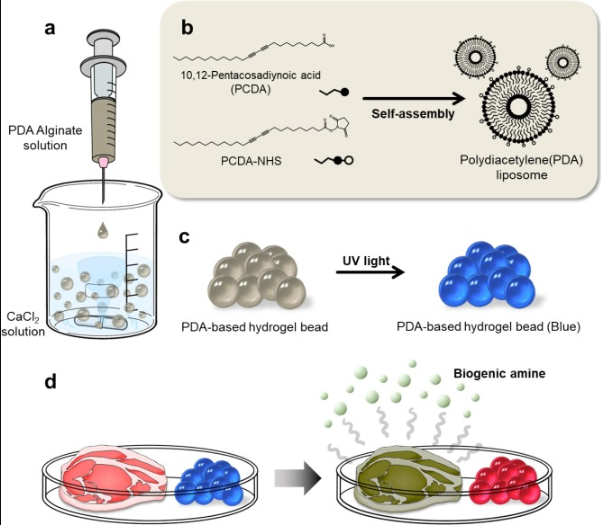Scientists from Korea (Jang et al., 2023 Polydiacetylene-based hydrogel beads as colorimetric sensors for the detection of biogenic amines in spoiled meat. Food Chemistry Vol 403, March 2023. https://www.sciencedirect.com/science/article/pii/S0308814622022798?via%3Dihub) developed a colorimetric sensor using polydiacetylene (PDA)-based hydrogel beads that change color upon binding with biogenic amines (Bas), to detect meat spoilage. The PDA-based hydrogel beads showed an apparent color change from blue to red in the presence of BAs in the liquid or vapor phase and were able to detect BAs from spoiled pork meat after four days. The PDA-based hydrogel beads can visually confirm the presence of BAs in solution or vapor form. Cadaverine and propylamine were rapidly detected with distinct color changes in the solution and vapor phases. The spoilage of pork meat at room temperature could be detected after two days. The PDA-based hydrogel beads could detect spoilage of meat left at room temperature on the second day. The beads are manufactured economically from edible alginate. Because the color change occurs as an irreversible reaction, the sensor can also be used to ascertain the food condition during storage and distribution.
Polydiacetylene-based hydrogel beads as colorimetric sensors for the detection of biogenic amines in spoiled meat
No comments

